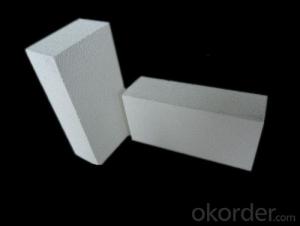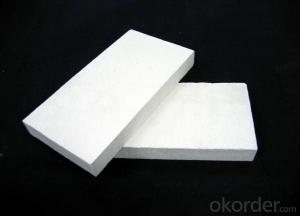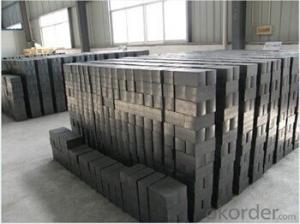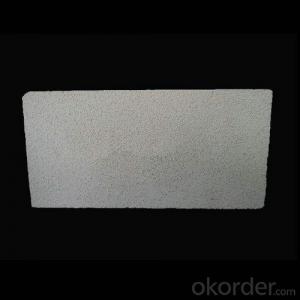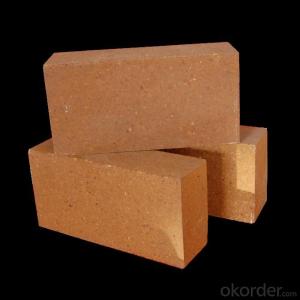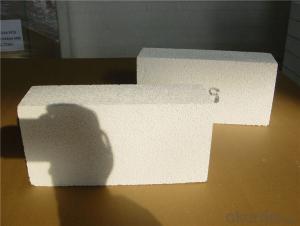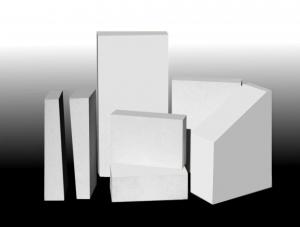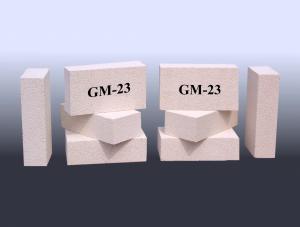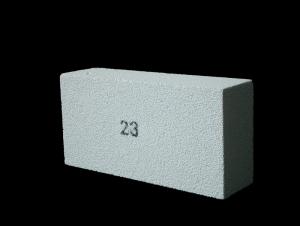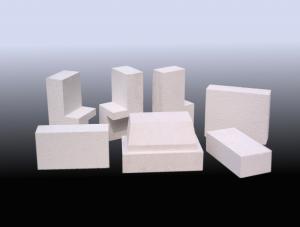Refractory JM Mullite Insulation Brick at China
- Loading Port:
- Shanghai
- Payment Terms:
- TT OR LC
- Min Order Qty:
- 10 m.t.
- Supply Capability:
- 500 m.t./month
OKorder Service Pledge
OKorder Financial Service
You Might Also Like
Refractory Mullite Insulating Fire Brick JM 23
OKORDER Series Insulating Bricks
OKORDER series insulating bricks are a kind of highly efficient, energy saving, low-carbon, environmental protection advanced products which are manufactured according to ASTM standard. OKORDER series products are the best lining and insulation materials in all types of industrial furnaces in the field of Metallurgy, Aluminum, Petrochemical, Ceramics, Power and Glass. They can be applied as heat insulation or no-melt erosion parts of the working layer. The products have been widely used in the following furnaces and achieved satisfactory results.
Application of Insulating Bricks
Metallurgy industry: Blast furnace, Hot blast stove, Reheating furnace, etc.
Petrochemical industry: Ethylene cracking furnace, Hydrogen production furnace, Primary reformer furnace, Reheating furnace, etc.
Ceramics Industry: Roller kiln, Pusher kiln, etc.
Glass industry: Glass furnace regenerator, etc.
Carbon Industry: Carbon roaster, etc.
Aluminum electrolytic industry: aluminum reduction cells,etc.
Other industries: Tunnel kiln, Shuttle kiln, etc.
Advantages of Insulating Bricks
Low Thermal Conductivity: More porosity brings excellent insulation effect, energy saving.
High Crushing Strength: High crushing strength under thermal state, volume stability.
Low Heat Storage: Little thermal storage when absorb more heat, energy saving effect is obvious.
High Purity: Low content of iron, alkaline and metal impurities.
Accurate Dimension: Precise brick size by machining, cutting and grinding special shapes, expediting bricklaying.
Picture of Insulating Bricks
FAQ
1. Which products do you have?
We have all kinds of refractory brick, castable, mortar, cement, ceramic fiber products, etc.
Or you could browse our products to choose what you need.
2. How do you control the products quality?
With strict quality control system throughout the materials selection and production process, our refractory and ceramic fiber products quality is effectively controlled to meet customer requirements.
From the raw materials selecting, our quality control begin. The quality certificates of raw materials are required and each batch will be tested before using. During production, the quality control are conducted by workers and then each piece will be sorted and examined by quality supervise.
3. Can you give me a brief introduction of the application of your products?
We are mainly specializing in the refractory materials in iron and steel, cement, glass, ceramics, petrochemical, electric power Industry, etc.
4. If I need your offer, what information do you need?
In order to choose suitable products, it will be appreciated to provide us the information, such us specification, technical data, order quantity, products application etc.
If any question, please contact us freely.
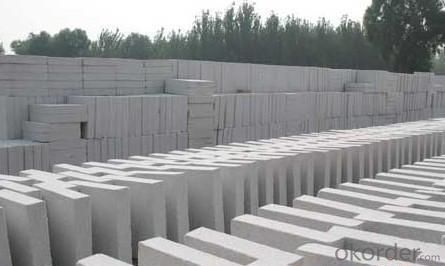
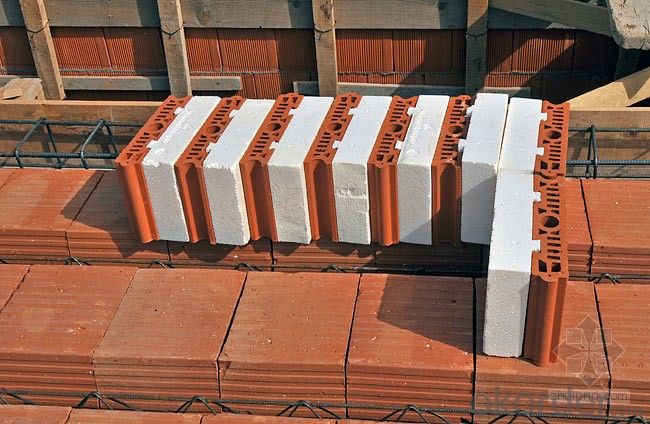

Application:
Insulation brick can be widely used for lining or insulation layers of various industrial furnaces and kilns in metallurgical industry, machine building industry, ceramic industry, chemical industry.
- Q:Can insulating fire bricks be used in the construction of ovens or kilns for pottery?
- Yes, insulating fire bricks can be used in the construction of ovens or kilns for pottery. These bricks are designed to withstand high temperatures and provide excellent insulation, making them suitable for creating a stable and efficient heat environment required for pottery firing.
- Q:Can insulating fire bricks be used in thermal oxidizers?
- Yes, insulating fire bricks can be used in thermal oxidizers. Insulating fire bricks are designed to have low thermal conductivity, meaning they can effectively reduce heat transfer and conserve energy in high-temperature applications. Thermal oxidizers are devices used to treat industrial exhaust gases by oxidizing pollutants at high temperatures. By using insulating fire bricks in the construction of thermal oxidizers, heat can be contained within the system, ensuring efficient combustion and minimizing heat loss to the surroundings. This not only improves the overall thermal efficiency of the thermal oxidizer but also helps to reduce energy consumption and operating costs. Additionally, insulating fire bricks are highly resistant to thermal shock and have excellent insulating properties, making them suitable for the harsh and demanding conditions typically found in thermal oxidizers.
- Q:Can insulating fire bricks be used in the construction of heat shields?
- Yes, insulating fire bricks can be used in the construction of heat shields. Insulating fire bricks are specially designed to handle high temperatures and provide excellent thermal insulation. They can effectively absorb and distribute heat, making them ideal for creating heat shields that protect against intense heat and prevent it from reaching sensitive areas or materials.
- Q:Can insulating fire bricks be used in the construction of reheat furnaces?
- Yes, insulating fire bricks can be used in the construction of reheat furnaces. These bricks are designed to withstand high temperatures and provide excellent insulation, making them ideal for use in furnaces. Insulating fire bricks have a low thermal conductivity, which helps to reduce heat loss and improve energy efficiency in the furnace. Additionally, they have high resistance to thermal shock, allowing them to withstand rapid temperature changes that occur during the reheat process. Overall, insulating fire bricks are a suitable choice for the construction of reheat furnaces, as they contribute to better heat retention and energy savings.
- Q:Are insulating fire bricks resistant to hydrofluoric acid vapors?
- Hydrofluoric acid vapors can cause damage to insulating fire bricks. These bricks are primarily made to handle high temperatures and offer thermal insulation. However, they are not specifically designed to withstand chemical attacks, such as those caused by hydrofluoric acid. Thus, caution should be exercised when using insulating fire bricks in environments where hydrofluoric acid vapors are present, as they may deteriorate or break down over time. Consulting with the manufacturer or a chemical engineer is recommended to identify the most suitable materials for dealing with hydrofluoric acid vapors.
- Q:Can insulating fire bricks be used in glass melting furnaces?
- Yes, insulating fire bricks can be used in glass melting furnaces. Insulating fire bricks are made with materials that have high insulating properties, such as lightweight refractory fibers, and are designed to minimize heat loss. In glass melting furnaces, where high temperatures are required, insulating fire bricks can be used to line the walls and roof of the furnace to reduce heat transfer to the surroundings and improve energy efficiency. They can help maintain high temperatures inside the furnace, reduce fuel consumption, and enhance the overall performance of the glass melting process. However, it is important to note that insulating fire bricks may have a lower resistance to chemical attack and wear compared to other refractory materials, so they may need to be supplemented with other types of refractories in certain parts of the furnace where harsh conditions are present.
- Q:Are there any differences between insulating bricks and refractory bricks?
- Heat preservation brick is to emphasize its heat preservation performance generally, not paying much attention to its refractoriness, but refractory brick is exactly the opposite. Different locations will use different materials, I hope we can choose carefully.
- Q:Can insulating fire bricks be used for insulation in industrial chimneys?
- Yes, insulating fire bricks can be used for insulation in industrial chimneys. Insulating fire bricks are specifically designed to withstand high temperatures and provide excellent insulation properties. They are made from lightweight refractory materials that have low thermal conductivity, allowing them to effectively retain heat and prevent its transfer to the surroundings. This makes them ideal for use in industrial chimneys, where insulation is crucial to minimize heat loss and improve energy efficiency. Additionally, insulating fire bricks are also resistant to chemical corrosion, making them suitable for the harsh and corrosive environments typically found in industrial chimneys.
- Q:Can insulating fire bricks be used in the construction of lime production linings?
- Insulating fire bricks are capable of being utilized in the construction of lime production linings. These bricks are specifically designed to possess low thermal conductivity, making them exceptionally beneficial for applications that necessitate heat insulation. In the process of calcination that takes place during lime production, high temperatures are essential. By incorporating insulating fire bricks into the construction of lime production linings, heat loss can be minimized, thus enhancing energy efficiency. Furthermore, these bricks are lightweight and easy to manipulate, rendering them suitable for lining various components of lime kilns and other equipment employed in the lime production process. In summary, the utilization of insulating fire bricks in lime production linings has the potential to optimize the production process and enhance the overall performance of lime production facilities.
- Q:Are insulating fire bricks resistant to weathering?
- Yes, insulating fire bricks are resistant to weathering.
1. Manufacturer Overview |
|
|---|---|
| Location | |
| Year Established | |
| Annual Output Value | |
| Main Markets | |
| Company Certifications | |
2. Manufacturer Certificates |
|
|---|---|
| a) Certification Name | |
| Range | |
| Reference | |
| Validity Period | |
3. Manufacturer Capability |
|
|---|---|
| a)Trade Capacity | |
| Nearest Port | |
| Export Percentage | |
| No.of Employees in Trade Department | |
| Language Spoken: | |
| b)Factory Information | |
| Factory Size: | |
| No. of Production Lines | |
| Contract Manufacturing | |
| Product Price Range | |
Send your message to us
Refractory JM Mullite Insulation Brick at China
- Loading Port:
- Shanghai
- Payment Terms:
- TT OR LC
- Min Order Qty:
- 10 m.t.
- Supply Capability:
- 500 m.t./month
OKorder Service Pledge
OKorder Financial Service
Similar products
New products
Hot products
Related keywords
